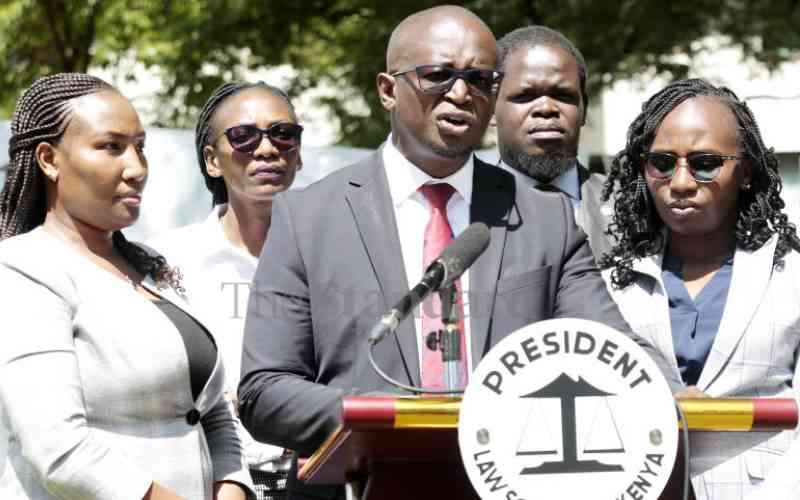×
The Standard e-Paper
Smart Minds Choose Us

The Law Society of Kenya (LSK) has moved to court to challenge the government's decision not to run its adverts in three national newspapers.
The Kenya Kwanza government has instructed state agencies not to advertise in the newspapers a move some see as a bid to monopolize information.